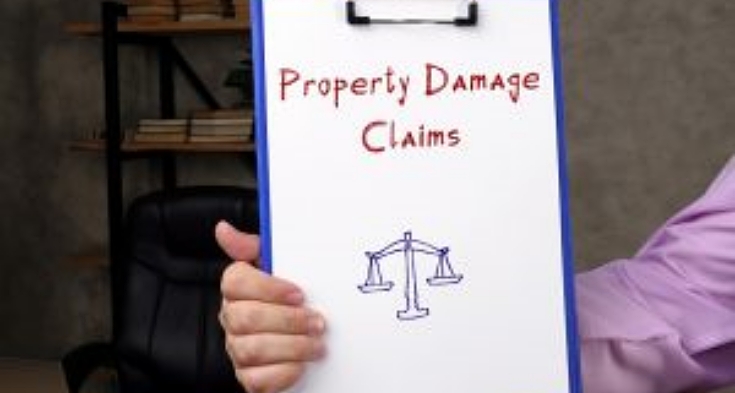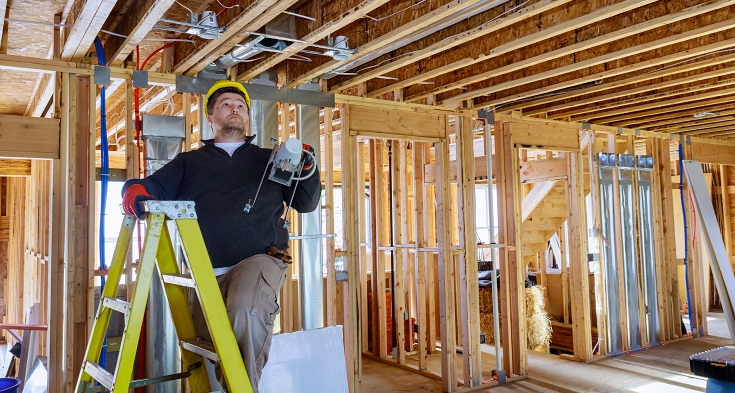
Understanding the distinction between the Agency for Health Care Administration (AHCA) and the Department of Health(DOH) is fundamental for healthcare providers, professionals, and facilities in Florida. These two agencies play crucial but distinct roles in ensuring high standards of care, safety, and compliance. In this comprehensive guide, we explore the functions of AHCA and DOH, compare their responsibilities, and explain why knowing the difference is essential for preparing for administrative proceedings.
Elevate Legal Services, PLLC, is a Boca Raton law firm focused on defending health care practitioners and facilities facing AHCA and DOH Administrative Complaints and administrative law hearings. If you’re dealing with an AHCA investigation or DOH complaint, contact us today at 561-770-3335 or via email at [email protected]. Our experienced attorneys provide vigorous, knowledgeable representation to protect your rights, license, and reputation.
What Is AHCA? Overview of AHCA Duties
The Agency for Health Care Administration (AHCA) is Florida’s primary health care regulatory and oversight agency. Its main missions include:
- Licensing health care facilities, including hospitals, nursing homes, and assisted living facilities.
- Enforcing facility compliance with state and federal obligations.
- Administering programs such as Medicaid.
- Conducting on-site inspections and investigations.
AHCA’s mission is to “administer Florida’s health care regulatory programs to ensure the effective delivery of quality health care to the public” (Fla. Stat. § 20.435).
Key AHCA Functions
- Facility Licensing
- Prioritizes initial and renewal licensure for institutions like hospitals, ambulatory surgical centers, and long-term care facilities.
- Requirements often include facility-specific standards around staffing, emergency preparedness, infection control, and building safety.

- Medicaid Program Administration
- Administers eligibility, provider enrollment, and reimbursements.
- Investigates potential program abuse, fraud, or improper payments.
- Compliance Inspections and Surveys
- Periodic and complaint surveys evaluate compliance with state and federal quality and safety regulations.
- Findings can prompt corrective action plans, civil monetary penalties, or license suspension.
- Enforcement and Disciplinary Proceedings
- Pursues administrative actions like Notices of Noncompliance, revocation, or fine imposition.
- Operates under Chapter 120, Florida Statutes—Florida’s Administrative Procedure Act.
What Is the Department of Health (DOH)? Overview of DOH Duties
The Florida Department of Health (DOH) regulates licensed healthcare professionals, including physicians, nurses, physical therapists, and more. Under Chapter 456 and Chapter 458–XX, DOH’s mission is to protect, promote, and improve the health of all people in Florida.
Core DOH Roles
- Professional Licensing and Regulation
- Issues licenses to individuals such as doctors, nurses, PAs, pharmacists, chiropractors, and more.
- Manages renewals and disciplinary actions.
- Investigations and Complaints
- Addresses complaints from patients, peers, insurers, or AHCA regarding professional misconduct, negligence, impairment, or violation of practice standards.
- May investigate allegations including sexual misconduct, boundary violations, incompetence, fraud, impairment due to substance abuse, and record falsification.
- Disciplinary Actions
- Through the Division of Medical Quality Assurance (MQA), DOH can sanction practitioners via Administrative Complaints, settlements, consent orders, probation, license suspension, or revocation.
- Disciplinary prosecutions proceed under Chapter 120, Florida Statutes.
- Rulemaking and Oversight
- Develops administrative rules (“chapter rules”) that regulate profession-specific conduct, continuing education requirements, standards of care, etc.
Key Differences: AHCA vs. DOH
Feature | AHCA | DOH |
Focus | Facilities, Medicaid, administrative enforcement | Individual health care practitioners |
Licenses | Facilities (hospitals, clinics, long-term care) | Doctors, nurses, therapists, chiropractors |
Investigative Target | Facility conditions, Medicaid compliance | Practitioner misconduct, standards of care |
Enforcement Actions | Fines, license suspension or revocation, plan of correction | Professional disciplinary fines, probation, suspension, revocation |
Oversight Statutes | Chapter 120, Chapter 400, Chapter 408, Chapter 395 | Chapter 120, Chapter 456, 458–XX, profession-specific chapters |
Rulemaking Authority | Facility standards, Medicaid regulations | Practice standards, continuing education, ethics |
Overlap: When AHCA and DOH Work Together
There are cases where both agencies share concurrent jurisdiction or forensic interest:
- Escapee Incident at Nursing Facility
If a resident wanders away and dies, AHCA may cite the facility for inadequate supervision. Simultaneously, DOH may investigate a licensed nurse involved in the incident for potential professional misconduct. - Medication Error
AHCA targets the facility’s medication administration systems. DOH investigates the individual who administered the medication. - Mandated Reporting Failures
If a DOH-licensed facility staffer fails to report abuse, AHCA may discipline the facility while DOH disciplines the licensee.
Agencies frequently share information and may initiate parallel investigations. In such cases, providers and practitioners must prepare for proceedings with both AHCA and DOH, which often involve separate processes, hearings, timelines, and evidentiary rules.
Administrative Proceedings: AHCA vs. DOH
Initiating the Process
- AHCA issues a Notice of Noncompliance or Notice of Intent (NOI) after inspections.
- DOH causes an Administrative Complaint after reviewing and investigating practitioner misconduct.
Both agencies rely on the Florida Administrative Procedure Act (Fla. Stat. Chapter 120) for due process rights, hearings, and appeals.
Administrative Hearings
- AHCA Hearings
- Conducted by a DOAH (Division of Administrative Hearings) Administrative Law Judge.
- Focus on facility conditions, statewide regulations, and systems compliance.
- Possible outcomes: Corrective action plan, compliance order, fines, probation, or license denial/revocation.
- DOH Hearings
- Also held by DOAH ALJs, focusing on practitioner conduct and patient impact.
- Actions include fines, probation, license suspension, probation, or revocation.
Legal Representation and Due Process
Both agencies afford full due process: notice, right to counsel, evidence, witnesses, and cross-examination. However, subject matter differs sharply, so having knowledgeable counsel in administrative law and health care regulation is imperative.
Florida Statutes and Rules: The Legal Framework
AHCA Relevant Statutes and Rules
- Chapter 400, 395, 408, 429, 390 – define licensing standards for various facility types.
- Chapter 120 – administrative procedure, including hearings and appeals.
- Chapter 408 Part II – Medicaid program administration and provider agreements.
- Florida Administrative Code (FAC) Chapters 59A‑3, 7, 8, 13, 18, 20 – rules for facility operations, compliance, survey procedures.
DOH Relevant Statutes and Rules
- Chapter 456 – general provisions for all healthcare practitioners; scopes of practice, disciplinary actions, immunity, confidentiality.
- Chapters 458‑460+ – profession-specific regulations (e.g., physicians, osteopathic, physical therapists).
- Chapter 120 – Administrative Procedure Rules.
- FAC Chapters 64B‑X – rules covering each professional board, including continued education, recordkeeping, patient records, and standard of care.
Why the Distinction Matters for Your Practice
Scope of Allegations
- Facilities face citations for sanitation, staffing, infection control, record retention, and emergency plans.
- Practitioners are subject to complaints including standard-of-care violations, professional boundaries, controlled substance handling, impairment, or criminal conduct.
Investigative Focus
- AHCA uses surveys, inspections, undisclosed complaint evaluation, facility-wide corrective actions, and remediation plans.
- DOH scrutinizes individual actions, documents, peer reviews, evaluations, witness statements, and expert testimony about competence.
Sanctions and Consequences
- AHCA consequences often affect operations: closure, probation, loss of Medicaid eligibility, recommissioning.
- DOH sanctions are personally impactful: license suspension or revocation, public record complaints, fines, and required continuing education.
Appeal and Timing Differences
- Hearings follow Chapter 120 but happen on different timelines. AHCA corrective actions may require quick resubmission timelines (e.g., 10–30 days), while DOH disciplinary tracks may take months to prepare.
Case Examples
Scenario 1: Nursing Home Neglect
A resident fell due to an unsafe environment—no handrails in the hallway:
- AHCA cites the facility under FAC 59A-4.108 for inadequate resident environment and issues a fine and corrective action plan.
- DOH may investigate the nurse who assessed the patient’s ability to ambulate and assess skill set.
Scenario 2: Medicaid Billing Fraud
Facility bills for services not provided:
- AHCA investigates Medicaid fraud via Chapter 408.
- DOH investigates licensed professionals involved in fraudulent documentation under Chapter 456 and rules governing professional misconduct.
Scenario 3: Practitioner Impairment
A doctor exhibits erratic behavior at the facility:
- AHCA can cite a facility for a lack of staff supervision or background checks.
- DOH initiates impairment investigation under Chapter 456, referring the licensee to the Professionals Resource Network for assessment, possibly leading to probation or monitoring conditions.
Preparing for AHCA and DOH Actions
Immediate Steps After Receiving Notice
- Retain counsel experienced in AHCA and DOH matters.
- Preserve evidence: medical records, staff schedules, and incident reports.
- Review relevant statutes: Chapter 400, 456, and FAC rules.
- Prepare prompt responses for corrective action plans, informal conferences, or Administrative Complaints.
Developing a Strategy
- AHCA
- Comprehensive fact and systems review (policies, staffing, incident logs).
- Engage survey consultants to propose thorough corrective actions.
- Attend informal conferences to negotiate a resolution or reduce fines.
- DOH
- Deconstruct allegations, focusing on standards of care and intent.
- Enlist expert witnesses, peer review, and evaluate mitigating factors (e.g., no prior discipline).
- Negotiate consent agreements or prepare for contested hearings.
Why Choose Elevate Legal Services, PLLC?
We understand how stressful and disruptive AHCA or DOH investigations can be. You need attorneys with deep knowledge of:
- Florida administrative law (Chapter 120 procedures).

- Healthcare regulations (Chapters 400, 456, 408, and relevant FAC rules).
- Experience representing both facilities and licensed professionals in complex regulatory environments.
Our Boca Raton–based team provides strategic defense at all stages—from early surveys or investigations to contested administrative hearings and appeals. We help clients navigate state agency processes, preserve licenses, and protect reputations.
Protecting Your Practice: Compliance vs. Defense
Compliance First: Avoiding Trouble
- Maintain up-to-date policies per AHCA and DOH regulations.
- Conduct self-audits focusing on infection control, patient records, billing, and practitioner fitness.
- Train staff to identify and report incidents and complaints early, without delay.
- Respond to AHCA surveys proactively and transparently.
Defense When Issues Arise
- Intervene early when you get a Notice of Noncompliance or DOH Complaint.
- Negotiate favorable outcomes using informal conferences or pre-hearing settlements.
- Ensure hearings are well supported with experts, documentation, and credible defenses.
- Consider administrative appeals if outcomes are unfavorable.
Final Thoughts
Distinguishing between AHCA and DOH is essential for effective healthcare compliance and defense in Florida. AHCA targets facility standards and Medicaid operations, while DOH regulates individual practitioner conduct. The stakes are high—each agency can impose serious penalties that affect your license, business, and livelihood.
If you face an AHCA survey, corrective action notice, or DOH Administrative Complaint, don’t wait. Early intervention is key to protecting your license and minimizing harm.
ContactElevate Legal Services, PLLC today at561-770-3335 or email [email protected] for experienced, strategic legal counsel tailored to healthcare regulatory matters.





